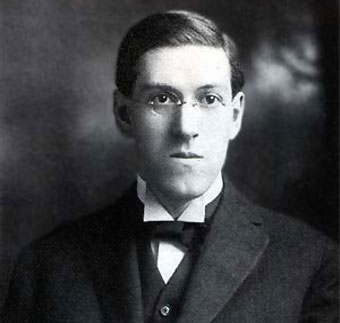 We dreamers and creators are always working toward a goal or dealing with a problem; waiting and hoping for answers and breakthroughs. Along the journey to realizing our hopes and aspirations we’ll encounter opposition and setbacks, and we’ll need to be able to endure delays and disappointments. Sadly, when “life happens,” it’s tempting to give up on our dreams and creative pursuits. If we want
We dreamers and creators are always working toward a goal or dealing with a problem; waiting and hoping for answers and breakthroughs. Along the journey to realizing our hopes and aspirations we’ll encounter opposition and setbacks, and we’ll need to be able to endure delays and disappointments. Sadly, when “life happens,” it’s tempting to give up on our dreams and creative pursuits. If we want  to stay the course and fulfill our destinies, we’ll need the backing, encouragement, comfort, strength, and reassurance that comes from One greater than ourselves. To get this Divine support, we’ll need some basic training … to follow several important spiritual steps.
to stay the course and fulfill our destinies, we’ll need the backing, encouragement, comfort, strength, and reassurance that comes from One greater than ourselves. To get this Divine support, we’ll need some basic training … to follow several important spiritual steps.
1. Write the Vision 2. Have FAITH that God is able to accomplish the vision -- and will bring it to pass 3. Feed your Faith and Dreams 4. Commit your Efforts to God 5. Tap into the Power of Prayer 5.2. Tips on Prayers for Creators & Dreamers 6. Trust God for Guidance 7. Seek and Trust God for Supernatural Favor 8. Manage your Mind 8.2. More on Managing your Mind 9. Adjust your Attitude (1/6/17) 10. Watch your Words (1/9/17) 10.2. Implement Praise (1/13/17) 11. Do Strength Training (1/20/17) 11.2. More Strength Training (1/23/17) 11.3. More Joy, More Strength (1/27/17) 12. Manage your Time (Monday, 1/30/17)
12.2 Trustworthy Tips for Time Management
 As we previously discussed, good Time Management skills are absolutely essential for creators and dreamers. But using our time wisely is also a Biblical mandate. After all, time is the single most precious resource we have: when it’s gone, it’s long gone; and we can’t beg, borrow, or steal more of it. Hence, God expects us to make the most of it. Here’s how:
As we previously discussed, good Time Management skills are absolutely essential for creators and dreamers. But using our time wisely is also a Biblical mandate. After all, time is the single most precious resource we have: when it’s gone, it’s long gone; and we can’t beg, borrow, or steal more of it. Hence, God expects us to make the most of it. Here’s how:
- As in dealing with money, we need to understand the value of time without becoming obsessed with it, lest we become misers of every single minute. And yet, we must never lose sight of the bigger picture — and what we’re hoping to accomplish in life. So, spend your time wisely. Remember, the next time you’re goofing off (excessively so), that instead, you could be hatching grand schemes and chasing big dreams! (It’s our favorite sport!)
- Like money, time is also a precious resource that needs to be shared. If we’re pursuing a dream, working to achieve a goal, we tend to be stingy with our resources, including our precious time. We may begin to give our time more and more sparingly, and perhaps grudgingly. It’s easy to get the
 mindset that we can’t afford to spend our time on anything or anyone but ourselves. Like a “minute miser,” we begin to hoard every brief moment, scowling like Ebenezer Scrooge, over every last second of the day.
mindset that we can’t afford to spend our time on anything or anyone but ourselves. Like a “minute miser,” we begin to hoard every brief moment, scowling like Ebenezer Scrooge, over every last second of the day.
But do we really want to get that obsessed with our dreams? Is that truly the ticket to success? Not according to Brian Taylor, a popular author and speaker on self development. Taylor states, “Successful people are always looking for opportunities to help others. Unsuccessful people are always asking, ‘What’s in it for me?'”
Most importantly, what does God think? The Lord proclaims, “Give, and you will receive. Your gift will return to you in full — pressed down, shaken together to make room for more, running over, and poured into your lap. The amount you give will determine the amount you get back.” (Luke 6:38 NLT)
 Here’s that Law of Reciprocity, again! (Previously mentioned in relation to Strength Training.) What we share with others eventually comes back to us — some way, some how, in some desirable form. It’s one of life’s great mysteries, but it works. And it applies not just to money, but also to love, acceptance, forgiveness … and time. There are many scriptures that reiterate this law, and unknowingly, even non-believers have embraced it, associating it with the idea of good karma and the phrase “what goes around comes around.”
Here’s that Law of Reciprocity, again! (Previously mentioned in relation to Strength Training.) What we share with others eventually comes back to us — some way, some how, in some desirable form. It’s one of life’s great mysteries, but it works. And it applies not just to money, but also to love, acceptance, forgiveness … and time. There are many scriptures that reiterate this law, and unknowingly, even non-believers have embraced it, associating it with the idea of good karma and the phrase “what goes around comes around.”
- So, it actually pays to make time for others. Sure, use your time wisely, but don’t be stingy with it, either. Don’t get frustrated with well-meaning people who take up your time. People aren’t problems, but people often have problems. Help a few of them, and you help yourself. For the good of us all, our world needs more Barnabas’s! (Or facilitators, named for our greatest example, in Acts 9:26-31.)
- Make your plans. Keep a schedule. But be flexible.
 Let’s stop viewing people as interruptions to our schemes and dreams. Instead, let’s view them through God’s loving eyes, as precious individuals struggling with problems or dealing with some difficult situation — as we all do; people who can use an encouraging word and a sympathetic ear.* So share your life. Share your resources: your money, your talents, your time! Ultimately you’ll benefit the most: being flexible (and therefore, relaxed) will enable you to keep your peace and joy, which are essential ingredients to maintaining the positive, faith-filled attitude that facilitates creativity and the pursuit of dreams.
Let’s stop viewing people as interruptions to our schemes and dreams. Instead, let’s view them through God’s loving eyes, as precious individuals struggling with problems or dealing with some difficult situation — as we all do; people who can use an encouraging word and a sympathetic ear.* So share your life. Share your resources: your money, your talents, your time! Ultimately you’ll benefit the most: being flexible (and therefore, relaxed) will enable you to keep your peace and joy, which are essential ingredients to maintaining the positive, faith-filled attitude that facilitates creativity and the pursuit of dreams.
Interestingly, experts on the subject of time-management have found that “busy” people have no problem finding time for the things they consider “important.” What’s truly important? When Jesus Christ was asked, What is the Greatest Commandment, the Lord responded, “Love the Lord your God with all your heart, soul, and mind. This is the first and greatest commandment. The second most important is similar: ‘Love your neighbor as much as you love yourself.'” (Matthew 22:37-39 TLB)
 Since relationships and human interaction are perhaps the most important aspects of life, we need to make time for them. We must never get so caught up in our creative activities, so consumed by our goals and ambitions, that we forget the God who gave us our dreams and visions, as well as the gifts and talents to pursue them. Similarly, because God treasures all people, we must never neglect those around us.
Since relationships and human interaction are perhaps the most important aspects of life, we need to make time for them. We must never get so caught up in our creative activities, so consumed by our goals and ambitions, that we forget the God who gave us our dreams and visions, as well as the gifts and talents to pursue them. Similarly, because God treasures all people, we must never neglect those around us.
Sounds like a lot of work to add to an already busy schedule. But if we properly manage our time, we can keep our priorities straight. We can be a blessing to others even as we persevere in the pursuit of our dreams. Ask the Lord to help you use time wisely and efficiently … and with compassion. Take stock in the knowledge that God understands all things, and He knows the value of your time.
 Now, declare with us, “…I trust in You, Lord; I say, ‘You are my God.’ My times are in Your hands….” (Psalm 31:14-15 NIV)
Now, declare with us, “…I trust in You, Lord; I say, ‘You are my God.’ My times are in Your hands….” (Psalm 31:14-15 NIV)
[*We’ll play the flip-side of this record when we discuss “Vanquish the Vampires.” Social vampires are those overly needy pains-in-the-neck, who never learn from their mistakes, refuse to take responsibility or even sound advice, complain about everything under the sun, and who love to hear themselves whine.]
Next: The Mechanics of Time Management: “Get Organized.”



 tale than in furthering his fame. He was a true facilitator, what we’ve often referred to as a “Barnabas.” (In Acts 9:26-31, Barnabas is the quintessential friend and facilitator: he stood by the Apostle Paul, who was viewed as an unknown quantity; and then he greatly aided Paul in his mission to take the Gospel to the Gentiles.)
tale than in furthering his fame. He was a true facilitator, what we’ve often referred to as a “Barnabas.” (In Acts 9:26-31, Barnabas is the quintessential friend and facilitator: he stood by the Apostle Paul, who was viewed as an unknown quantity; and then he greatly aided Paul in his mission to take the Gospel to the Gentiles.) Furthermore, when it comes to formulating and solidifying your dreams and goals, writing the vision is extremely important. Ideas and inventions, the seeds of great plots and plans, begin to take shape and grow when properly recorded. “The more you write about it and talk about it,” writers Jack Canfield and Mark Victor Hansen state, “the more clear and believable it will become.” (Chicken Soup for the Soul: Living Your Dreams, p. 9)
Furthermore, when it comes to formulating and solidifying your dreams and goals, writing the vision is extremely important. Ideas and inventions, the seeds of great plots and plans, begin to take shape and grow when properly recorded. “The more you write about it and talk about it,” writers Jack Canfield and Mark Victor Hansen state, “the more clear and believable it will become.” (Chicken Soup for the Soul: Living Your Dreams, p. 9) or accomplish in order to further our goals. We copy Bible scriptures that “speak” to us about our dreams; and we collect inspirational stories and quotes which encourage and support us in the pursuit of these dreams.
or accomplish in order to further our goals. We copy Bible scriptures that “speak” to us about our dreams; and we collect inspirational stories and quotes which encourage and support us in the pursuit of these dreams.